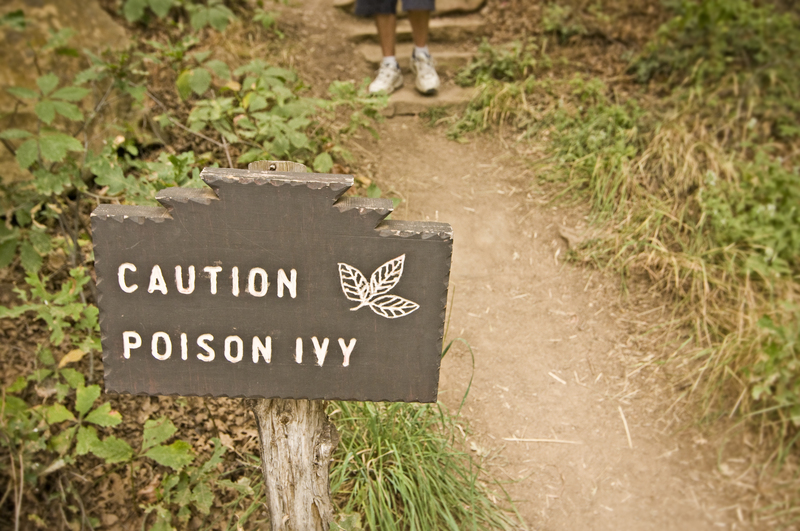Winter Garden Care: Keep Your Plants Safe and Sound
Posted on 21/09/2025
Winter Garden Care: Keep Your Plants Safe and Sound
As the cold months approach, many gardeners wonder how to help their beloved plants survive the winter's chill. Proper winter garden care is essential for keeping your garden healthy, vibrant, and ready to bloom come spring. In this in-depth guide, we'll cover everything you need to know about protecting your plants during the cold season, ensuring they remain safe and sound through harsh winter conditions.
Why Is Winter Protection Important for Gardens?
Ensuring your garden survives winter is more than just an act of love--it's a sound horticultural practice. Freezing temperatures, frost, wind, and snow can damage plant tissues, cause dehydration, and kill off weaker species. A little care now can save you months of disappointment later.
- Reduces the risk of plant loss: Many garden favorites aren't naturally adapted to severe cold.
- Minimizes pest and disease issues: Well-cared-for gardens in winter are less susceptible to spring infestations.
- Improves spring performance: Healthy overwintered plants bounce back faster and flower more profusely.

Preparing Your Garden for Winter
The key to winterizing your garden is early and thorough preparation. Follow these steps for effective winter gardening care:
1. Clean Up Plants and Beds
- Remove dead foliage, spent annuals, and any plant debris.
- Compost healthy materials, but trash anything diseased to prevent issues next year.
- Weed thoroughly to reduce overwintering pests.
2. Prune and Protect Perennials
- Cut back perennials after they die back naturally, but leave a few inches above ground to trap snow and insulate crowns.
- Do not prune spring bloomers; they set buds in fall.
- Tender perennials, such as dahlias or cannas, should be lifted and stored indoors.
3. Mulching: Your Garden's Winter Blanket
Applying a thick layer of winter mulch is one of the most effective ways to shield your plants from fluctuating temperatures.
- Use organic mulch like shredded leaves, wood chips, or straw.
- Aim for a 2-4 inch layer around the root zone (not against stems).
- Wait until the ground is cold but not frozen, so you don't invite rodents.
Mulching provides insulation, retains moisture, and protects roots from freeze-thaw cycles.
4. Protecting Trees and Shrubs
- Wrap trunks of young or tender trees with burlap or tree wrap to prevent frost cracks and sunscald.
- Shield evergreens from drying winter winds using windbreaks or anti-desiccant sprays.
- Water deeply in late fall before the ground freezes, especially for newly planted specimens.
How to Protect Sensitive Plants from Frost
Some plants need extra care during extended cold spells. When frost is forecast, use these strategies to minimize damage:
- Cover delicate plants overnight with frost cloths, sheets, or even cardboard boxes. Remove coverings during the day to let sunlight and air circulate.
- Move potted plants indoors or to sheltered locations--garage, shed, or against a south-facing wall.
- Use cloches or cold frames for particularly precious or temperature-sensitive specimens.
Essential Winter Watering Tips
Many gardeners forget that plants need moisture--even in winter. Here's how to keep winter garden soil adequately hydrated:
- Water deeply in late autumn while the soil is still absorbent.
- In mild climates, continue watering evergreens and new plantings during dry winter stretches.
- Avoid watering frozen soil, as this can cause root rot or suffocation.
Winter Garden Protection for Different Types of Plants
Perennials
- Most established perennials require only mulching for winter hardiness.
- Less hardy types can be insulated with straw, pine boughs, or a frost cover.
Bulbs
- Spring-flowering bulbs (like tulips, daffodils) should be planted in the fall for natural cold stratification.
- Tender bulbs (such as gladiolus) must be dug up, dried, and stored in a cool, dry environment.
Annuals
- Remove and compost annuals at the end of their life cycle--most will not survive winter.
- For self-seeding varieties, allow some seed heads to remain for next spring.
Vegetable Gardens
- Cover crops (like winter rye or clover) can be sown to protect soil and add nutrients.
- Mulch root vegetables (carrots, beets) with straw for extended harvest into winter.
- Clean up beds and rotate crops next spring to prevent pests and disease.
Container Plants
- Insulate pots by grouping them together, wrapping with bubble wrap, or burying them in soil.
- Use frost-proof pots (like thick ceramic or plastic) to minimize temperature extremes.
- Move fragile specimens indoors when possible.
Protecting Your Lawn During Winter
Winter garden care isn't just about flower beds--your winter lawn care ensures greener, thicker turf next spring.
- Rake and remove fallen leaves regularly to prevent smothering grass and the development of mold.
- Avoid heavy foot traffic on frozen grass, which can break brittle blades and leave bare patches.
- Apply a final cut shorter than usual (about 1.5 inches) to prevent matting under snow.
Comprehensive Tips for Winter Garden Maintenance
- Monitor weather forecasts and be proactive about frost warnings.
- Keep tools clean and sharp--disease-free tools prevent transmission of pests.
- Maintain garden structures, such as supports, trellises, and fencing.
- Check stored bulbs and tubers monthly for rot or mold.
- Continue adding compost and organic matter to improve soil while it rests.
Common Winter Garden Problems--and Solutions
Rodents and Pests
- Mice and voles often target mulched beds and bark in search of food. Use wire mesh collars at the base of young trees and avoid piling mulch against trunks.
- Remove fallen fruit and nuts regularly to reduce attractants.
Frost Heaving
- Alternate freezing and thawing causes soil to push plant roots upwards, exposing them to cold.
- Solution: Apply extra mulch, especially after the first freeze, to keep soil temperatures even.
Desiccation/Drying Out
- Wind and sun can dehydrate plants, particularly evergreens.
- Solution: Water deeply in fall and use anti-desiccant sprays where needed.
Indoor Plant Winter Care Tips
Many gardeners bring prized plants indoors as temperatures fall. Indoor winter plant care requires attention to these points:
- Provide as much natural light as possible--use grow lights if sunlight is limited.
- Reduce watering to reflect lower light levels and decreased growth.
- Maintain humidity with trays of water, humidifiers, or frequent misting.
- Keep indoor plants away from cold drafts and heating vents.
Planning for Next Year: Winter Is for Gardeners, Too!
While your outdoor garden may sleep, winter is the perfect time to plan and prepare for the coming season. Consider ordering seeds, browsing new plant varieties, and mapping out changes or expansions in your garden layout. Reviewing your successes and challenges now helps ensure an even better garden next year!

Frequently Asked Questions About Winter Garden Care
-
Q: Which plants need the most winter protection?
A: Tender perennials, young trees, container plants, and non-hardy bulbs require the most care. -
Q: Can I compost in winter?
A: Absolutely! Although decomposition slows, keep adding organic matter to your pile for healthier soil in spring. -
Q: Should I fertilize my garden in winter?
A: Avoid fertilizing outdoor plants in winter--wait until early spring when growth starts anew.
Conclusion: Give Your Garden the Gift of Winter Care
Gardeners are always looking forward--but none more so than when staring at a frosty landscape! With careful winter garden protection, your plants will weather the season and thrive spectacularly when spring arrives. So mulch, cover, water, and watch over your garden--it'll thank you with lush beauty in the months to come!
Related Guide: The Ultimate Spring Planting Checklist
Tags: winter plant protection, how to care for garden in winter, overwintering garden plants, winter gardening tips, seasonal garden maintenance
Latest Posts
Evergreen Climbers for Shade: Enlivening Dim Spaces
Elevate Your Outdoor Space with 5 Simple Budget-Friendly Solutions
Winter Garden Care: Keep Your Plants Safe and Sound
Maximize Comfort and Style with Ideal Garden Seating Spaces
Gain Confidence with These 9 Essential Tips for Novice Gardeners

